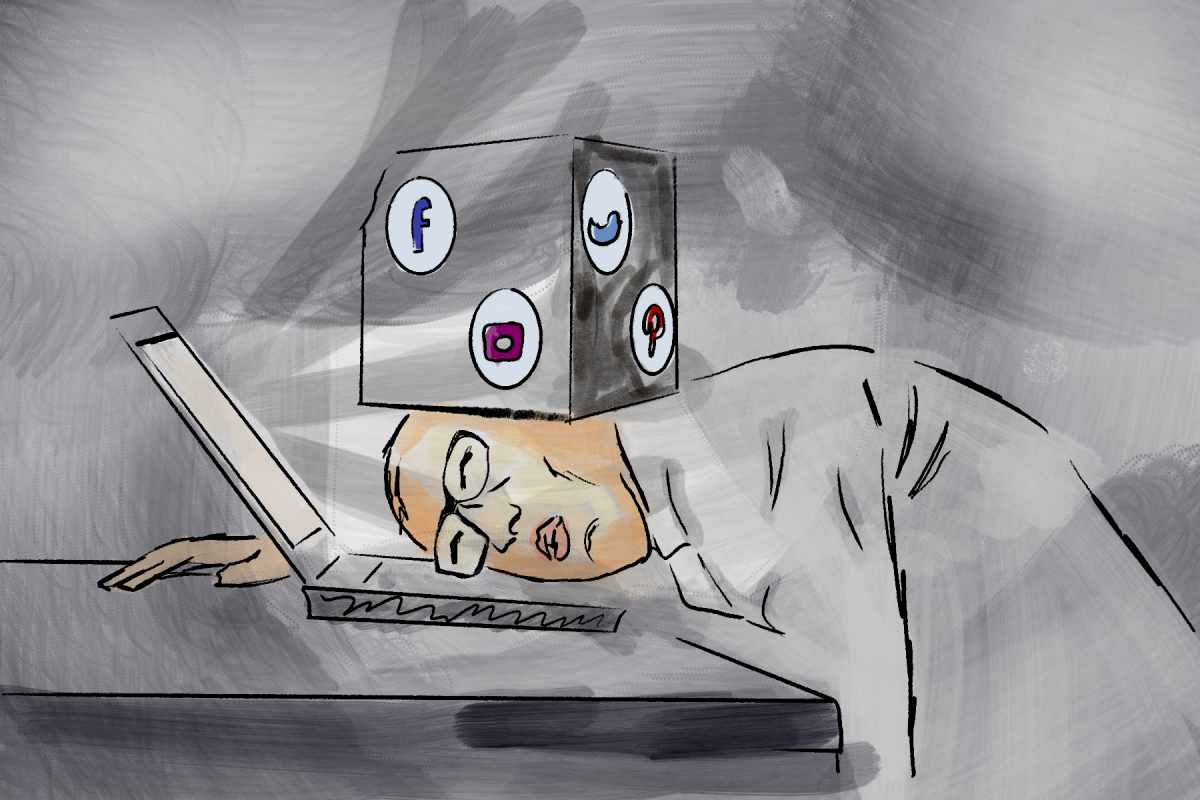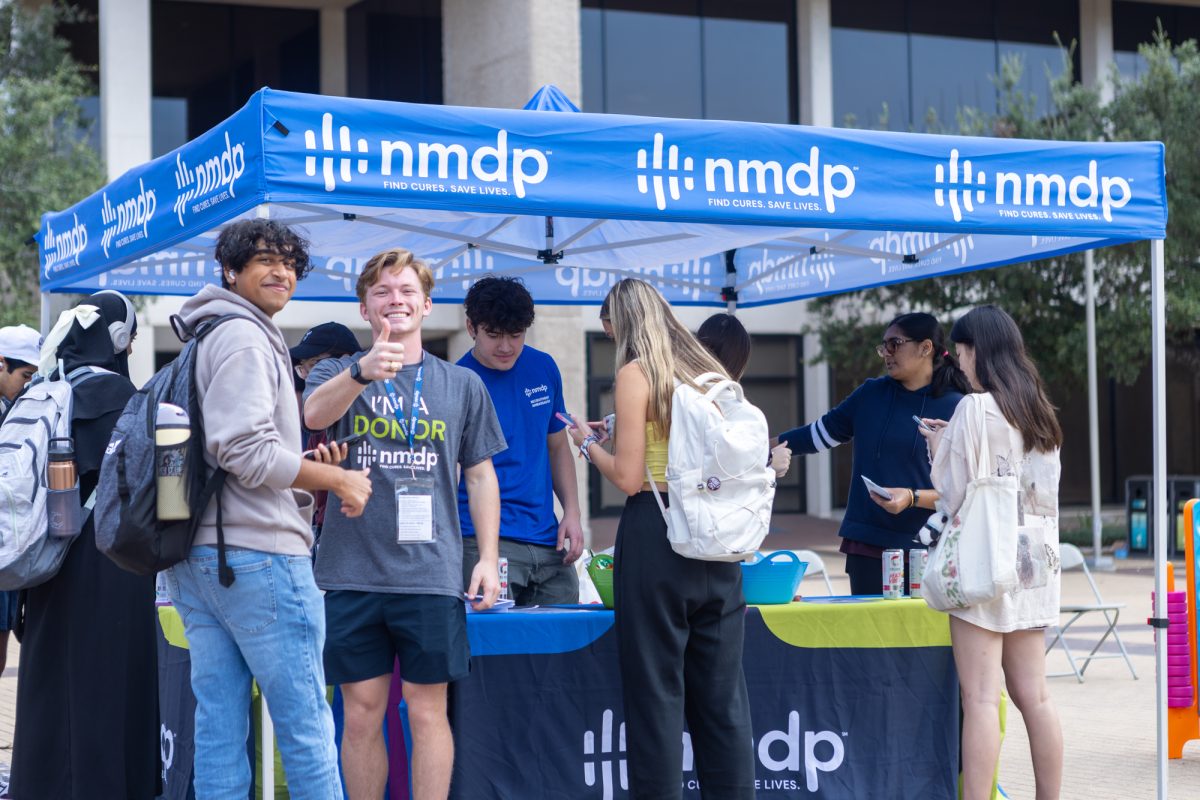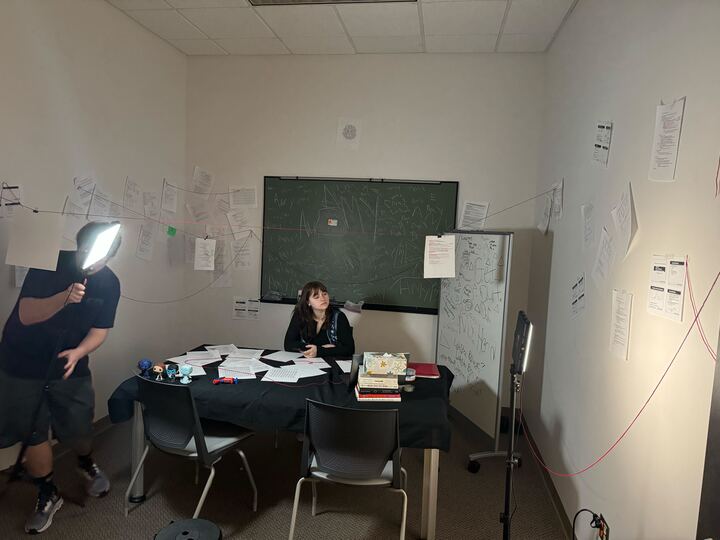Media fatigue affects young adults who are particularly tuned into the constant online social media cycle, and it continues to affect their health.
90% of Generation Z, or Gen Z, and Millennials report spending more than two hours a day online, according to a survey by the Media Insight Project. More than half say they spend five hours or more online, while roughly a quarter say they spend over nine hours a day online.
As the world transitioned into the Information Age, the need for accessibility of information has only grown larger and stronger across the world, festering into the modern demand that has led to the exhaustive 24/7 cycle often seen today.
The two generations subjected most to this never-ending cycle are Gen Z and Millenials. Gen Z includes those born between 1997 and 2012, and Millennials are those born between 1981 and 1996, according to an article by the Pew Research Center’s president, Michael Dimock.
Texas A&M director of social media Nick Wilson said part of the reason social media usage has gone up is the abundance of sources of content available to current generations. Wilson attributes the carefully designed algorithms as a reason people are glued to media, with systems designed to keep people scrolling in order to boost the apps’ revenues. Because of this, the apps are constantly pumping new information to consumers in order to keep them hooked.
“Social media never turns off,” Wilson said. “People are always on, posting and engaging with stuff.”
The result, Wilson said, is that it is difficult to keep up. The 24-hour information cycle leads to fatigue and exhaustion as common side effects of media consumption. Roughly two-thirds of participants in the survey claim to be worn out by the news and roughly a third say they aren’t happy with the amount of news, according to a study done by the Pew Research Center.
There are many reasons why Gen Z and Millennials are exhausted by the news. Many people consider the media to be divisive. According to a study by the Media Insight Project, 60% of people consider news stories created for conflict and not solutions to be a major problem with media. Similarly, 53% consider made-up news to be a major issue, according to the Media Insight Project.
The divisive content and misinformation weigh heavily on people closely tied to online mediums, like social media. Over 70% of Americans aged 16 to 40 get news from social media platforms at least daily, according to the Media Insight Project; 91% receive their news via social media at least weekly.
A&M engineering professor Alfredo Garcia is currently conducting research on how mental fatigue affects people’s effort allocation, and said media fatigue affects the way people function in day-to-day life.
While a lot of work and focus has been oriented toward physical fatigue and how it drops productivity, fewer studies have focused on mental fatigue, Garcia said. That’s because physical fatigue has a chemical footprint in the body not found with mental fatigue, Garcia explained.
“When you get tired, the muscles start to release certain chemicals, so it’s easy to detect,” Garcia said. “The evidence for mental fatigue is much more nuanced, because the brain is not like a muscle. It’s a very complex organ.”
Social media’s abundance and consumption have a direct effect on mental fatigue in people, negatively affecting users’ psychosocial well-being, according to a study from the International Journal of Information Management. Despite this, people are still tightly connected to the same social media platforms that cause this fatigue.
Boredom and the innate desire for information inputs are to blame for peoples’ insistent connection to media, Garcia said. Ironically, boredom and information overload also increase susceptibility to social media fatigue, according to a study from the International Journal of Social Psychiatry.
“The brain is tuned to being exposed to surprises; that’s why people like to browse on the web,” Garcia said. “There’s a dopamine-release mechanism, so it seems like our brains are naturally inclined to want to form surprises.”
Despite it being tied to human nature, there are many ways to fight the issue of media fatigue, Brady Stone, a digital producer for the Houston Chronicle, said. With his job requiring him to be tuned in with trends on both social media and traditional media, Stone said he has had to learn to account for online fatigue.
One of the ways is using the algorithms to one’s personal advantage, Stone said. He recommends keeping in touch with the “fun side” of social media, and establishing work-life balance. Other tactics include finding new methods of absorbing media to escape monotony and taking occasional breaks.
With more information available now than ever, and more than any one person could properly consume, Stone said anyone can use the 24-hour nature of media to their advantage.
“Prioritize yourself,” Stone said. “News is always happening, sports is always happening… Log off.”
Jordan Epp, Class of 2022, and contributed this piece from the course JOUR490: Journalism as a Profession, and is a former sports editor of The Battalion.









